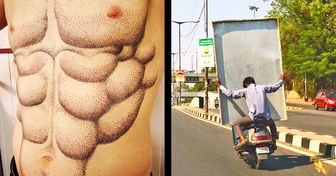What 14 Iconic Movies Would Look Like With the Original Casting

A sore throat, nosebleeds, and chapped skin and lips — these are only a few harmful things that dry air can do to our bodies. It’s also dangerous for our pets and most houseplants. This is why it’s so important to keep humidity in our houses at an appropriate level. And this is when a humidifier can come to the rescue and turn your home into a comfortable place for everyone.
Here at Bright Side, we decided to learn more about how a humidifier can improve our health and help us fight the discomfort that comes into our homes along with dry air. We’d love for you to take a look at the benefits we’ve discovered.
Keeping the indoor humidity level at 43% or higher helps prevent the spread of the flu. Higher humidity can disable up to 86% of viruses that live in the air. If you have dry air in your home, it doesn’t get you sick by itself, but aerosol droplets from a sneeze or cough live and prosper in such conditions.
In winter, when the heater is on, it’s hard to keep the necessary humidity level naturally, so a humidifier, together with a moisture measuring tool, can do a great job at keeping levels safe.
Very dry air is a serious enemy to the skin and hair. Indoor humidity at a level of 40% can help you solve a lot of skin problems such as acne, dry skin, itchiness, and dry hair. Many dermatologists advise their patients to humidify the air in their apartments to keep skin feeling fresh and healthy.
If you or your kid are ill, the most annoying thing to deal with is that cough, which can be dry and unproductive due to the dry air. This type of cough makes you feel even more sick since it interrupts your sleep and can last for up to 2 months. However, when you add some humidity to the air, this puts more moisture into the airways, making your cough more productive. As a result, you’ll recover faster.
Humidifiers can help with snoring that’s triggered by breathing in dry air. They can be a great way to help this annoying habit often caused by nasal congestion and throat irritation.
Dry air can irritate the tissues of your nose and throat, causing inflammation that can worsen snoring. Additionally, dry and dehydrated airways have thicker mucus, which can increase surface tension and make the risk of snoring bigger.
Just like humans, super dry air due to central heating is harmful to animals. According to a veterinary opinion, a home humidifier or a pan of water on top of a radiator can prevent your cat from “kitty asthma.” And for dogs who may be suffering from the so-called “kennel cough,” humidifying the air may relieve this bad coughing.
Sometimes plants need higher humidity than what your home can provide. Plants have developed naturally over a long period of time to survive in their regular environment.
For example, some plants are “fed” by a constant supply of vapor from the air. Trying to water these plants instead of humidifying them is like feeding a newborn baby solid foods. They just don’t know how to take them. To help your plants thrive, you need to turn on the humidifier from morning till lunchtime, and this will give them the best atmosphere.
With properly humidified air, static electricity in your home naturally dissipates. However, static electricity begins to build up when the air is too dry. Static electricity is most commonly associated with painful electric shocks when you touch a metal surface, but it can also warp or damage wood furniture, musical instruments, paper items, and cause blankets and clothes to stick together. Keeping the air in your apartment humid will help you avoid these issues.

Dry air can make both adults and kids feel a “clogged nose” effect. Another problem it may cause is nosebleeds. This can lead to interrupted sleep and overall discomfort during nighttime. Keeping the air humid by putting a glass of water under your bed helps your nose breathe freely throughout the night and sleep without waking up till morning.
How do you keep the air in your home humidified?











